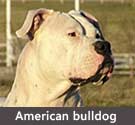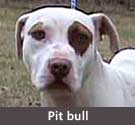
Justin Clinton, 10-years old, was brutally killed by two pit bulls belonging to a friend.
Family Files Suit
UPDATE 09/05/09: The mother of 10-year old Justin Clinton, who was mauled to death by two pit bulls in June, filed suit against the couple who owned the dogs. Serenia Clinton's lawsuit accuses Ricky and Christi George of gross negligence and carelessness and contends they are liable for Justin Clinton's death. They are seeking more than $100,000 and other damages to be determined by the court, attorney fees, costs of the suit and other relief from the dogs' owners.
The suit revealed that one of the dogs bit Ms. Clinton's son two weeks before the fatal attack on June 15. The earlier attack was concealed from the boy's mother, the lawsuit claimed, and the dogs had on numerous occasions prior to Justin's death been aggressive toward people while running loose in the neighborhood. The owners "knew or should have known of the two dogs' vicious propensities," stated the lawsuit prepared by Ms. Clinton's attorney, Cynthia Stevens Kent.
06/17/09: KLTV Pities Owners
KLTV 7 News dedicated a segment to the owners of the pit bulls that fatally attacked Justin Clinton. The segment appears to be a pit bull apology piece designed to paint the pit bull owners, Ricky and Christi George, as "victims." The story can best be described as deplorable in the wake of a young boy torn apart by the powerful jaws of these dogs. The piece also emphasizes that the dogs were not loose. In other words, the "victim" dog owners are not liable under Lillian's Law.
The segment also confuses1 viewers by calling the dogs American bulldogs2 instead of pit bulls or pit bull-mixes. This is a common tactic taken by pro-pit bull groups to try to lower the staggering number of serious and fatal attacks that have been attributed to pit bulls over the last 30-years. KLTV's attempt to mislabel the dogs (or attempt to confuse viewers) also contradicts Rusk County Sheriff Deputies which stated that there is "no doubt" that the dogs are pit bulls.




2The modern American bulldog was not established until the 1970's. The AKC does not recognize the breed, and the UKC only began to in 1999. There are two major lines of the breed: the Johnson type (1st left photo) and Scott type (2nd left). The Scott type was directly developed by crossing early Johnson lines with the American pit bull terrier and has become the breed standard. Without question, the Scott type is a pit bull type dog.
06/17/09: Owners Recently Purchased Dogs
The Kilgore News Herald reports that both dogs had formerly been owned by someone else in Kilgore. It is unknown if prior complaints were filed against them. Authorities said the dogs, a 3-year old male and a 2-year old female, had puppies in mid-February but none remained at the home now. Ricky and Christi George got both dogs, who have always been together, in February. The Georges' homeowners insurance had also reportedly lapsed because Ricky lost his job.
06/16/09: Full Scale Investigation Planned
News sources report that a Rusk County pit bull attack on Friday preceded the fatal pit bull mauling of Justin Clinton on Monday. Justice of the Peace Bob Richardson said a 4-year old girl was seriously attacked by a leashed pit bull in Henderson. During the attack, the dog's owner was walking the pit bull on a leash when it broke free and attacked. Officials were determining what to do with that pit bull when they were notified of the attack that left Justin Clinton dead.
Currently, Rusk County does not have a leash law. Yet as one can see, a leashed pit bull can still pose a significant threat.
TylerPaper.com, which covered the serious pit bull attack on Kristi Langston back in March, also reports that a "full scale investigation" is planned in the aftermath of Justin Clinton's death. Rusk County Sheriff Danny Pirtle said that the owners of the dogs could face felony charges under Lillian's Law. He also said the two pit bulls were put down about 30 minutes after they were confiscated from a home on County Road 133. The owners of the dogs remain unnamed.
06/15/09: Victim: 10-Year Old Justin Clinton
Leverett's Chapel, TX - In a developing story, authorities say two pit bulls fatally mauled a 10-year old boy in an East Texas town. The Rusk County Sheriff's Office said witnesses reported seeing the dogs drag Justin Clinton down the side of the road in the small community of Leverett's Chapel. A Tyler television station reported that a passing motorist pulled the dogs off the boy. The fourth-grader was later pronounced dead at Good Shepherd Hospital in Longview.
The Rev. Edwin Findley, acting on behalf of the dogs' owners, said "both families" have been hurt, even though only one family has a dead son.
The newest Texas fatal pit bull mauling (Rusk County) lies on the other side of Dallas (Stephens County), where 7-old Tanner Joshua Monk was killed by his neighbors four pit bulls in May of 2008. On March 26, 2009, 18-month old Tyson Miller was killed by a chained pit bull outside of his home in Luling (Caldwell County) and on March 31, 2009, 7-month old Izaiah Gregory Cox was mauled to death by his grandmother's two pit bulls in San Antonio (Bexar County).
 Justin Clinton Memorial Fund
Justin Clinton Memorial Fund
Donations can be made to the Justin Clinton Memorial Fund at any Regions Bank in East Texas to help Justin's family pay for funeral expenses.
Related articles:
07/01/09: Justin Clinton's Family Starts Campaign: "Justice for Justin: Outlaw Pit Bulls"
04/21/09: Attack Victim's Husband: Pit Bull Regulation Sorely Needed
04/01/09: 2009 Fatality: 7-Month Old Boy Killed by Grandmother's Pit Bulls
03/31/09: 2009 Fatality: 18-Month Old Killed by Pit Bull in Luling, TX
10/11/08: Fatal Dog Mauling Trial of Tanner Joshua Monk, 7 Years Old

That Reverend has some nerve!
The pit bull owners chose to own vicious, dangerous animals.
A Reverend who cares more about PIT BULL OWNERS than innocent children. He is REPRESENTING THE PIT BULL OWNERS according to the article.
Can you believe this?
Maybe he should have directed one of his sermons to his flock member who chose to endanger the community and put everyone at risk by owning these dangerous dogs. Maybe if he had addressed the sin of that, this boy would still be alive today.
I'll never forget the video of Tanner Joshua Monk; that beautiful flying angel boy:
https://blog.dogsbite.org/2008/05/2008-fatality-boy-killed-by-pit-bulls.html
Texas legislators needs to STAND UP and PROTECT their children NOW. Please so help me God, stand up now.
Texas. Again. You could see this one coming.
I already see another one coming. They will do nothing to protect children. It will happen again, and again, and again.
Because that's Texas.
"Don't Mess With Texas!" (Because pit bulls have already made a mess of us.)
This makes one more child NOT killed by pit bulls in DENVER.
Way to go Texas Legislature…
Texas is a shining example of how Anti-Bsl provisions never work!
Justin was the 13th Texas child killed by a Pit Bull since January 2006…If it were Coyotes doing this the Govenor would have the National Guard out eliminating them. Pit Bulls, however, get to hide under their shakey presumption of domestication as dogs.
Texas Pit Breeders are showing no movement toward breeding safer pit bulls. I'm sure they won't come in and track these dogs back to their breeder.
Another report says the female had pups….yet she left them and went off property to maul a child passing by.
Enter now the question: What will the pit bull community do with the pups, Cull or proliferate?
This is the exact same scenario as the Tanner Monk fatality…These dogs had pups and left them to go after a child passing by.
What other breed does this?!!!!!
I have a seven year old son and cherish every moment with him. This fatal attack on a ten year old is horrific.
That could be any of our children. What can we do? How do we educate these lawmakers, each and every one of them.
I would challenge any of them to a debate. The law is clear. The truth must be told. Bans work. Eliminate the DEED. Ban the BREED.
A total, horrific re-enactment of TANNER MONK! I guess the Rev. missed that one? Hard to figure, because there must have been hundreds of headlines across Central Texas about Monk and his subsequent LANDMARK trial.
I am appalled that the Reverend would even dare to put the hurting of this poor child's family on the same level as the owner's of the vicious beasts. How dare he do that? How dare anyone who's pit kills/maims another even whisper the words, "I'm hurting, too." There absolutely is no comparison. NONE!!!
All these recent events in Texas prove that Lillian's Law DOES NOT WORK. And you can bet the pit bull advocates ARE NOT organizing to insist the deed is punished.
PREVENT THE DEED – BAN THE BREED!
So we can see yet another illegal breeding operation (no taxes being paid to Texas I am sure!) but Texas legislators are more interested in protecting tax cheat dog breeders and dog fighters than taxpayers and honest citizens.
Texas: Not too long ago, it was okay to shoot your wife for having an affair but you can not shoot a pit bull for attacking your dog. That is quite a state down there. Is it too late to give it back to Mexico?
http://www.news-journal.com/news/content/news/stories/2009/06/16/06162009_Boy_mauled.html
"Rusk County officials considered enacting a leash law in August 2008 for unincorporated areas of the county, after residents in the Elderville subdivisions of Airport Gardens and Ranchette complained of dangerous, stray dogs not being properly secured in their neighborhoods. Commissioners did not take action on the matter."
These commissioners have blood on their hands.
I remember the trial of Crystal Watson and Jack Smith.
Now they were some freakish looking pit bull owning defendants. I think the eugenics movement would have come in handy down in Texas.
Does anybody know if they will be released from prison in time for the filming of the next sequel of The Hills Have Eyes?
"Both families have been hurt." Not, "The family deeply regrets what their dogs did to this boy." No remorse. No accountability. Just hide behind the minister and beg for pity. Those people deserve the same pity their dogs showed Justin. A pox on their house, and the minister supporting them.
What a shame Christi and RIcky Earl's wiggle butts didn't take them for a walk near the train tracks some time prior to Monday.
For most other kinds of dogs, leashes work.
For pit bulls, not even a leash is enough.
Pit bulls have been attacking people and pets WHILE THE PIT BULLS WERE STILL ON THE LEASH.
Pit bulls are not fit to be in public, period.
At the very least, they need to be leashed and MUZZLED. A muzzle lets them pant and drink just fine, but not bite.
Excellent point! It is the muzzle that is absolutely essential.
A muzzle will only buy you a minute or two.
I saw a new story on line about a year ago, pit nutters whining about bsl. The young woman said her pit hates the muzzle and can get it off. She demonstrated for the camera crew. Less than a minute and the muzzle was off. Don't under estimate the prey drive of this dog.
Meet Rev. Edwin Findley (photo at link), a pastor at Laird Hill Baptist Church. He and his wife of 20 years, Joyce Ann, have three sons and one daughter Edwin Joshua Findley (25) and Eric Floyd Findley (24), Teya Hollis (36) and Shawn Stickle (30) and eight grandchildren.
—-
http://www.kilgorenewsherald.com/news/2008/0316/front_page/001.html
"I want to know what happen to that baby," said Ricki. "What caused them dogs to go off the way the did? Because they've never given any indication that they would attack anybody."
This ignorant hillbilly is setting Justin up to take the blame.
PRAYING?!?!?!?
For your own ass I'm sure! Which one of you two losers will doing time for snuffing out this young boy's life?
I saw your fence. That is inadequate for a pit bull YOU MORONS!
Go seek comfort with Rev Putz. Society is not buying your crocodile tears.
So why is the media censoring bad things about pit bulls?
Can we get an answer from the publisher about why they hid that info? Is there an editor at that paper doing something for personal reasons?
User "Becky" left a comment at the KLTV website:
"First off, I know the dog owner(s) and their family are very saddened by this tragic event. And my prayers are with you as well. However, anyone in their right mind that would have any breed of a bulldog should know and realize that these dogs are not family pets. They can be loveable dogs on minute and totally turn on their own owners in seconds. I work as a Social Worker in a Children's Hospital and have seen this over and over of innocent children being attacked by their family dogs or dogs owned by others. It doesn't take much to set the tragic behavior of these type of breeds off. A loud noise, a firecracker, a backfire from a vehicle or just the screams of play from a child. I am sure in time the childs family will be forgiving, but they will mourn the loss of their child for an eternity. I believe that the dog owner(s) need to be held responsible for this tragedy. In their video that have a dog run on their property with SEVERAL dogs, why were these two dangerous dogs not locked in that dog run rather to roam free in the fenced yard to raise havoc and have the access to get out of the fenced yard. Charges or no charges filed against the dog owner(s) they still have a responsibilty to this childs family for the loss that they are now suffering. My utmost sympathy and prayers go out to this childs family."
Rusk County Sheriff's Office stuck to their guns by emphatically declaring these dogs as pit bulls! Worthy of a DogsBite award to be sure:
http://www.rcsotx.org/
As of january this year, the pit breeders who killed Tanner Monk (Jack Smith and Crystal Watson) were still free pending appeal.
Unless I am mistaken, not a single Texan has served a single day in Jail under Lillian's Law….Yet their are still weekly maulings by pit bulls.
http://www.wfaa.com/sharedcontent/dws/wfaa/jdouglas/stories/wfaa090119_wz_dogmaulfolo.d99567f.html
The hindsight approach is clearly not working!
Not the best Ambull photo for comparisons. Like the APBT, the Ambull is not a strict physical type. There are very different types of Ambulls, Johnson Type and Scott Type are the primary types. The Johnson Type has a stockier body and the muzzle is more Boxer like. The Scott Type is more APBT like. And like the APBT, there is a great deal of physical variation within the breed types. To further complicate things, there are many unscrupulous Ambull breeders who purposely breed the APBT into it and conceal that info from buyers.
Some good links to see and read about the differences:
http://www.moloss.com/brd/ab/a004/
http://www.bulldoginformation.com/american-bulldog-types.html
https://en.wikipedia.org/wiki/American_Bulldog
A breeder photo album of the Scott type:
http://www.libbertykennels.com/photoalbum.htm
Looking at the photo of the dog that fatally attacked Justin, I would say there is a strong likelihood that the George's were crossing Ambulls and APBTs and most probably not disclosing that information to buyers either.
Did you see this comment? People have got to go to family court and fight for the safety of their kids!
"I have a 5&3yr old there daddy that lives else where has a pit bull & it kills me every time thay have to go over to his house because of the dog.The bad thing is it's a stray at that. ALL PIT BULLS need to be put down!!!!!!!!!!!!!! My kids mean more to me then a dog…..How many more kids or adults have to be hurt or killed before something is done about these dogs???????????"
The AKC does not recognize the American bulldog or the pit bull terrier. The UKC only began recognizing the American bulldog in 1999 (I repeat, 1999).
http://www.ukcdogs.com/WebSite.nsf/Breeds/AmericanBulldog
—–
The photo does depict the Johnson type, as does the UKC sketch (mainly). Like pit bulls, which vary widely in size (40-100lbs) and physical conformity, there are variances within the American bulldog breed as well. Yet the making of the American bulldog comes from the same gene pool as the pit bull and the two have been bred back and forth for many generations. Up until 1972, the American bulldog was called the "American pit bulldog."
http://www.libbertykennels.com/history.htm
—–
"The only baiting sport to survive the humane laws of 1835 was pitting dog against dog in pit fights. Some of the old English working bulldogs were crossed with the extinct white fighting English terrier, which created the ultimate dog-fighting machine, the bull-terrier mix. Coal miners in the Staffordshire region of England created the Staffordshire Bull Terrier for these pit fights between dogs. Later the Staffordshire Bull Terriers were imported to American to create the American Staffordshire Terrier and the American Pit Bull Terrier by crossing back to American Bulldog. It is said that these American made pit bulls are up to 85% old English working bulldog, or American Bulldog."
http://www.molossermania.com/brd/a/a004/a004b/history.html
—–
What matters here is the constant confusion of these breeds presented to the American public. This is why the term "pit bull type" dog exists, which includes multiple breeds. The State of Ohio specifically includes the American bulldog in their definition of dogs "commonly known as pit bulls." Other municipalities have followed suit. Furthermore, it seems the goal of many American bulldog and pit bull breeders (such as Diane Jessup) is to take the breeds "back" to the original "working bulldog," which according to Jessup is the pit bull.
The name confusion history of the pit bull is well documented. The breed has been called all of the following names (and likely more): pit bulldog, American pit bulldog, bull pit dog, bulldog, bull terrier, Staffordshire bull terrier, Staffordshire terrier, American Staffordshire terrier, St. Francis terrier and more recently the American bully (which is a cross between an APBT and Amstaff).
"I want to know what happen to that baby," said Ricki, the owner of the dogs. "What caused them dogs to go off the way the did? Because they've never given any indication that they would attack anybody."
Puke! I call BS! I bet these imbeciles have repeated every pro pit talking point hundreds of times to anyone dumb enough to listen. Pit bulls happened and that's all there is to it.
The AKC recognizes the pit bull terrier all right! They just call it the Staffordshire Terrier.
And their breeders recognize the pit bull terrier, because their breeders are directly lobbying FOR pit bulls and against pit bull regulation!!
Can someone put an eye patch on that freak of a dog with the pale eye? I can't imagine the terror that goes through anyone's mind, much less a child's, when a dog like that is attacking them. Lillians Law does not work. Leash laws don't work for these dogs. What will work is castrating them out of existence.
The Tyler paper has updated the story on the 4-year old:
—
"While officials were trying to determine if a pit bull that attacked a 4-year-old girl Friday in Henderson should be confiscated as a dangerous animal, a 10-year-old was being attacked just miles away.
Rusk County Precinct Justice of the Peace Bob Richardson said he and other officials were trying to determine if a pit bull should be seized and destroyed for causing serious bodily injury to the 4-year-old when they were notified of the attack that left Justin Clinton dead."
—
http://www.tylerpaper.com/apps/pbcs.dll/article?AID=/20090617/NEWS01/906170323
Trying to determine if that dog is dangerous? Are they NUTS? What, is the dog fighter that owns it telling them it is too valuable to euthanize?
What does it take to prove that a dog is dangerous? 5 Kills?
Texas must hate children. How many little ones need to be torn apart in that state?
If Lillian's Law only covers roaming dog attacks, then I have a message for Christy and Ricky George:
http://trollcats.com/wp-content/uploads/2009/06/suicide_is_the_solution_trollcat.jpg
KLTV 7 is clearly questionable. As they interview the pit bull owners in this video, they show a group of FENCED Chihuahuas. Check it out, the shot is 01:31 into the clip. Does anyone think this is by happenstance? "All dogs bite" as the pit bull lobby saying goes, therefore "all dogs bite and KILL" including Chihuahuas. KLTV is the pit bull lobby at it's most disgusting form — ensuring that more kids are maimed and killed by pits and that MORE parents unwittingly buy pits under the guise that they are "safe."
There should be no discussion, period. If a dog attacks a human being outside the line of police work, the dog should be put down. It sickens me that they want to sit there having that debate while another child a few miles away is being mauled TO DEATH.
These dogs produced pups….The responsible Pit Bull community is AWOL on recommending the euthanization of them for public safety purposes.
I'm sure folks in Leverett's Chapel will be thrilled to see the pups grow into full-sized pit bulls in Christi and Ricky George's backyard. Heck, maybe even KLTV will give them a new segment so that they can talk about how "sweet" the pups are. Far worse, however, is that they sell the dogs to a new family so that the new family can experience a life altering attack.
Gee, I thought it was "all how you raised them"! Why not charge the Beverly Hillbillies, Christi and Ricki, with felony animal cruelty for being dog fighters? They must have "trained" the dogs o kill little boys, because pit bulls only fight to please their owners!!!
These folks are back yard breeders, making money off their pit bulls. I don't suppose there's a really big pet market for these dogs amongst normal people….I am sure the types of thugs who want to buy puppies from Ricky and Christi don't want "nice" dogs, they want dogs for dog fighting, or cheap burgler alarms, or a dog to guard their meth lab. So, chances are, these pit bull owners knew their dogs were dangerous, but also knew there was a profitable market for dangerous pit bulls.
Are the dog owners renters or home owners? Does their insurance agent know they are running a pit bull breeding business?
Wikipedia is of mixed value due to anyone able to edit but here is some info about ownership of KLTV7
https://en.wikipedia.org/wiki/KLTV
It gives contact info link for Raycom Media too that owns it.
The OWNERS need to know if a dog breeder or pit bull nut (ala Best Friends and their breeders) is altering the news to promote pit bulls, blame the victim, and protect the pit bull owners.
I hope that the boy's parents already have a lawyer, because the pit bull owners and breeders will be embarking on a smear campaign to attack this little boy and his family.
And they may have dog fighting/dog breeding lobbyists paying for a smearing lawyer.
Lakecia Shockley reported on 7-year old Keelan Clark's attack last November. She said that to be able to talk to the boy was a "miracle." Keelan was left with 80 stitches to the face, neck and head. This attack should have qualified for Lillian's Law, but no charges appear to have been filed.
I wonder how Keelan's family felt watching the "Pity the Pit Bull Owner" newscast that was broadcast to 70,000 East Texas homes? I can't imagine what went through the minds of Justin's family. If there is a trial over the death of Justin, authorities would be wise to move it out of Rusk County. This jury pool has been tainted by KLTV's "pity" newscast.
—
http://www.kltv.com/global/story.asp?S=9407898
The reverend of that church also seems to behind protecting these pit bull breeders. I wonder if he has some kind of personal relationship to them, or is this just the dog fightin', hog doggin' mentality that even seems to afflict the authority figures in some of these states.
But the TV station is acting very suspiciously!
Why are their reporters sucking up to the dog fighter & breeder lobby?
Rusk County District Attorney Micheal Jimerson (prosecuted in KFC trial)
—
http://www.kilgorenewsherald.com/news/2009/0118/news/008.html
A recent Tyler resident wrote in about the THIRTY YEAR OLD pit bull problem, which will continue creating new victims until direct action is taken to PREVENT these attacks.
—-
"I am outraged to read about another pit bull attack resulting in the death of 10-year old-Justin Clinton. Pit bulls are unpredictable, vicious monsters. Their unprovoked attacks leave injury and death in their wake and, in my opinion, ownership of these animals should be banned in the United States.
How many more innocent people will have to suffer injury and death before owners understand the danger? The sad part is pit bull attacks have been occurring for decades and still nothing is being done to eradicate this breed of dog. One of my relatives was attacked 30 years ago by a pit bull. After numerous reconstructive surgeries, the physical scars are barely visible but the emotional scars are a life-time sentence.
I don't care to read ridiculous praise of these animals from pit bull owners. I don't care how docile and cute they are as puppies. I don't care how loyal and loving they are to their master. I don't care! What I do care about are the people all over this country who are victims of pit bull attacks. I also care about children whose parents are irresponsible pit bull owners."
—-
http://www.tylerpaper.com/apps/pbcs.dll/article?AID=/20090621/OPINION04/906200351
hey its kasey im soooo sorry about justin i really miss him a whole lot i really do im at school right now me and cinda just got on this web sight and decited to leave a comment i love you bieeeee
Pit bull owners demand that Justin Clinton's memorial be taken down:
—
"The owners of two pit bulls that mauled to death a 10-year-old Leveritt's Chapel boy demanded a memorial to the child be removed, according to his mother.
Serenia Clinton will attend a brief ceremony at 9:30 a.m. Saturday at the spot of her son's death across from his school on County Road 133 to witness removal of the memorial.
The memorial started out as a cross made of poster board with Justin Clinton's name on it and signed by his fifth-grade classmates at Leveritt's Chapel School, but is now a wooden cross stuck in a pot with flowers.
It is located on property leased by the owners of the pit bull dogs that fatally attacked Justin Clinton on June 15, his mother said.
Ricky George and Christi George reportedly complained to Ms. Clinton's attorney that many people go to the memorial and it is disturbing to them. The couple demanded that the memorial be removed. The couple could not be reached for comment Friday."
—
http://www.tylerpaper.com/apps/pbcs.dll/article?AID=/20091107/NEWS01/911070318
My disgust cannot be articulated.
2003 Pit-Rotticide
http://www.click2houston.com/news/2656703/detail.html
Another Texas Piticide from 2000:
http://www.igorilla.com/gorilla/animal/2000/pit_bull_kills_child.html
Here we are in 2016 and this is still going on!